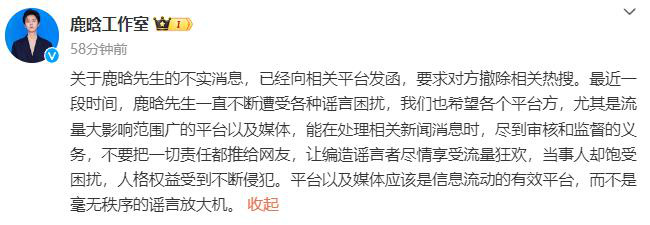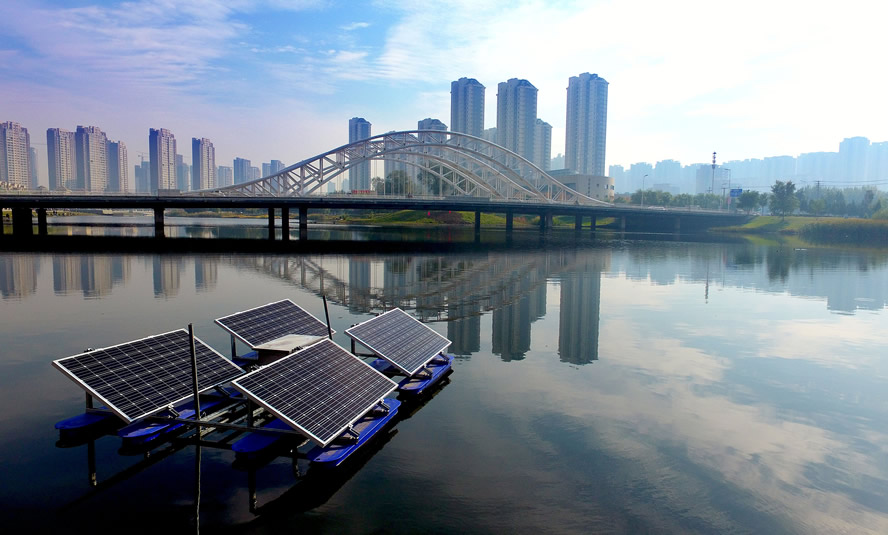China Economic Net, Beijing, April 28 According to the website of the Ministry of Supervision of CPC Central Commission for Discipline Inspection, from October 30 to December 30, 2015, the Sixth Inspection Team of the Central Committee (hereinafter referred to as the Central Inspection Team) conducted a special inspection of the Party Committee of the People’s Bank of China (hereinafter referred to as the People’s Bank). On January 31, 2016, the Central Leading Group for Inspection Work gave feedback to the Party Committee of the People’s Bank of China. According to the relevant provisions of the "Regulations on Patrol Work in the Communist Party of China (CPC)", the patrol rectification situation is now released.
I. General situation
The Party Committee of the People’s Bank of China attaches great importance to the patrol feedback. After the feedback meeting on the special inspection, Comrade Zhou Xiaochuan, secretary of the Party Committee and president, immediately presided over a party committee to thoroughly study and understand the spirit of the important instructions of the Supreme Leader General Secretary on inspection work and the requirements of the central authorities for doing a good job in inspection and rectification, carefully study the feedback from the Central Inspection Team, deeply analyze the problems pointed out by the inspection, and deploy the inspection and rectification work for the whole system. Party committees at all levels in the People’s Bank of China system and leading cadres in party member are required to regard special inspection and rectification as a major political task at present and in the future, and earnestly assume the main responsibility of comprehensively administering the party strictly and implementing inspection and rectification with a high sense of responsibility and mission.
(1) The Party Committee attaches great importance to it.
The Party Committee of the People’s Bank of China has set up a special inspection and rectification work leading group, with Comrade Zhou Xiaochuan as the leader, Comrade Yi Gang and Comrade Wang Huaqing as the deputy heads, and other members of the Party Committee as members to uniformly lead the inspection and rectification work of the whole system. Comrade Zhou Xiaochuan, as the party secretary, earnestly fulfilled the responsibility of the first responsible person. On February 5, February 23 and March 29, he presided over the party committees three times to rectify the relevant problems pointed out by the Central Leading Group for Inspection Work and seriously deal with the relevant responsible persons.
Comrade Zhou Xiaochuan and members of the Party Committee of the People’s Bank of China presided over four special meetings, interviewed the responsible persons of relevant units individually for many times, listened to the report on the implementation of rectification, and reviewed the implementation of rectification of problems pointed out by the Central Leading Group for Inspection Work item by item to ensure that "all articles should be rectified and all pieces should be settled".
On March 29th, Comrade Zhou Xiaochuan presided over the special democratic life meeting of the Party Committee of the People’s Bank of China, deeply analyzed the problems found in the inspection, seriously carried out criticism and self-criticism, and further implemented the rectification measures. According to the deployment of the Party Committee of the People’s Bank of China, relevant departments, directly affiliated enterprises and institutions, relevant units and branches also held special democratic life meetings to implement the rectification requirements of the Central Leading Group for Inspection Work and the Party Committee of the People’s Bank of China.
(2) Strictly implement responsibilities.
After careful study and deliberation by the Party Committee, the Party Committee of the People’s Bank of China issued the Work Plan for the Central Leading Group for Inspection Work to patrol the People’s Bank of China, making it clear that all units are responsible for rectification, and the units clearly pointed out by the Central Leading Group for Inspection Work are the key responsible departments for rectification. It is required that all units should set up a leading group for special inspection and rectification, and the main person in charge of each unit is the first responsible person for rectification, and make a detailed rectification plan according to the problems pointed out by the inspection. The leaders in charge and the members of the office of the leading group for special inspection and rectification work shall, in accordance with the division of responsibilities, strengthen the supervision and guidance of the responsible departments for rectification, and ensure that the inspection and rectification work is paid close attention to and effective.
Members of the Office of the Leading Group for Special Inspection and Rectification of the People’s Bank of China shall, in accordance with the division of responsibilities, strictly review and check the rectification plan and implementation submitted by each unit, and resolutely urge them to make rectification again if they do not meet the requirements or the rectification measures are false and not in place. Member units have held several meetings to study key rectification issues, strictly and uniformly rectify standards, and urge relevant units to effectively rectify in place. The rectification guidance department and the stationed discipline inspection team will strengthen supervision and inspection and follow-up supervision of the rectification work of each unit. Establish a general ledger for rectification work, list detailed problem lists, task lists and responsibility lists, and implement them one by one.
The Party Committee of the People’s Bank of China has also adjusted and set up an inter-departmental enterprise management committee, a sub-branch work coordination committee and an international affairs committee, which are under the responsibility of the leaders of the branch in charge, designated the lead departments and relevant functional departments to participate, conducted research and coordination on major issues involving enterprises, institutions, branches and international affairs, and further improved relevant management mechanisms.
(3) Centralized special rectification
During the stationing of the Central Leading Group for Inspection Work, the Party Committee of the People’s Bank of China organized a special self-inspection and rectification on the collection of party fees, office space, car allocation and housing violations. According to the feedback from the Central Inspection Team, the Party Committee of the People’s Bank of China deployed the whole system to focus on the investigation and payment of party dues, the special clean-up of office buildings, car allocation and housing violations, the illegal construction of buildings and halls, the indiscriminate payment of salary subsidies, public funds to eat and drink, and the use of training centers for extravagant enjoyment.
The special clean-up and rectification work was organized under the unified leadership of the leading group for special inspection and rectification work of the People’s Bank of China, and all units earnestly enhanced their political awareness of being responsible for the party and earnestly performed their duties. As the first responsible person, the "top leaders" of each unit define the rectification measures, implement the rectification responsibilities, limit the rectification time limit, and establish the rectification account. Strictly implement the discipline of special clean-up and rectification work, ensure that the investigation problems of special clean-up and rectification are true and complete, and the special clean-up and rectification work will not be delayed. Deeply analyze the root causes of the problems, and take the attitude of strict grasp, strict reform and strict accountability, and never let go of the problems, and never let go of the rectification. Those who resort to deceit, conceal and fail to report, and those who fail to carry out rectification as required, will be dealt with severely. In the process of special clean-up and rectification, violations of discipline and discipline against the wind are found together, investigated and dealt with together, and will never be tolerated. Each unit takes the special clean-up and rectification as an opportunity to combine it with strengthening daily supervision and management and internal control mechanism construction to establish a long-term mechanism for standardized management.
Second, the rectification of the feedback from the Central Leading Group for Inspection Work
In response to the feedback from the Central Leading Group for Inspection Work, the Party Committee of the People’s Bank of China carefully formulated measures to do a good job in rectification, and formulated a total of 268 rectification measures. As of March 30, 2016, 119 rectifications have been completed; The remaining 149 items are being rectified. Among them, 38 items are planned to be rectified by the end of June 2016, 53 items are planned to be rectified by the end of December 2016, 5 items are planned to be rectified by the end of December 2017, 51 items need to be rectified for a long time, and 2 items will be rectified immediately after the approval of the central government.
(1) The rectification of the problem of "weakening the leadership of the party and failing to strictly manage the party in an all-round way"
First, adhere to the above rates and do a good job of demonstration and guidance. At the democratic life meeting of the Party Committee of the People’s Bank of China, the team members took the initiative to report matters related to personal housing, car use, spouses and children, and asked the democratic life meetings of various departments to be in line with the Party Committee. The members of the team found and analyzed the performance of strictly administering the party’s main responsibility, promoting the building of a clean and honest party style and anti-corruption work, and put forward improvement measures to continuously strengthen their awareness of the main responsibility of party building. Team members strictly implement the dual organizational life system of leading cadres, and participate in the democratic life meeting of the branch where they are in charge or organizational relations as ordinary party member, with a total of 19 person-times, and put forward strict requirements for the leadership of departments and bureaus to "dare to grasp", "dare to manage" and "dare to take responsibility".
Second, in accordance with strict requirements, we should implement the responsibility of managing the party from the aspects of ideological understanding, system construction, inner-party life and discipline. Strengthen the ideological and political construction of leading bodies and strengthen the awareness of managing the party. Strengthen the study management of the central group, inform the central group of party committees (party groups) at all levels in the People’s Bank of China system about their study, enhance their political awareness, overall awareness, core awareness and conformity awareness, and consciously become "sensible people" politically. Strictly manage the party by system, improve the working mechanism of party building, give full play to the role of the leading group of party building work of the People’s Bank of China, and transfer the overall responsibility of strictly administering the party’s main body to party organizations and responsible persons at all levels, forming a pattern of party building work that is linked up and down, responsible at all levels, interlocking and implemented together. The People’s Bank of China has comprehensively carried out the evaluation and assessment of party building work, continuously optimized the quantitative assessment system of party building, and established the orientation of "doing a good job in party building is the greatest political achievement". Strict inner-party life and create a good political ecology. Explore the establishment of leading cadres’ democratic life before the meeting, attend the meeting, report after the meeting, analyze and summarize the system, strengthen the supervision and guidance of all links, ensure the quality of democratic life, and play its role as a platform for education and management of party member and party spirit training. Strict discipline and rules, in accordance with the requirements of putting discipline and rules ahead, comprehensively popularize and apply the anti-corruption risk prevention and control system, regularly check risk points at different levels, strengthen the restriction and supervision of power and capital operation, and initially establish an internal control mechanism for business departments to implement supervision responsibilities and discipline inspection departments to implement re-supervision. Carry outMy bottom line, my rules, everyone talks about "special activities, organizes special organization life meetings to study and implement the two laws and regulations within the party, and bureau-level cadres take the lead in learning and communication. Party member cadres’ awareness of discipline and rules has been significantly enhanced, and a good habit of respecting discipline, observing rules and defending the system has gradually taken shape.
The third is to take practical measures to solve problems, prevent risks and fill shortcomings around the issues raised in the patrol feedback on macro-control, internet finance, financial supervision and coordination, organizational structure and overall planning of party building. In-depth research, listen to the opinions and suggestions of all parties, strengthen the analysis of economic and financial situation, innovate monetary policy tools, fully demonstrate the proposed policies, and further enhance the scientific, effective and forward-looking nature of monetary policy and macro-control. Actively respond to the concerns of all parties, reasonably guide public opinion and market expectations, and further improve the recognition and credibility of monetary policy. Members of the Party Committee of the People’s Bank of China explained China’s monetary policy and macro-control intentions through international conferences, international financial exchange and cooperation platforms, actively participated in the coordination of international economic and financial policies, the reform of the international financial system and the formulation of rules, issued the "China Voice" and actively promoted the adoption of the "China Opinions". Strengthen the supervision and management of new financial formats such as Internet finance. Give full play to the leading role of the lead unit of the financial supervision and coordination mechanism. Actively promote the reform of branch management system. Strengthen the classified guidance of party building work, sort out, refine and standardize the party building work system and workflow of the People’s Bank of China, and improve the institutionalized, systematic and scientific level of party building work. The Party Committee of the People’s Bank of China will continue to be problem-oriented, adhere to the above rate according to the characteristics of the vertical management of the Party building work of the People’s Bank of China, and truly realize the goal of grasping organs, bringing systems and promoting grassroots,Comprehensively improve the overall effectiveness of the people’s bank of China in managing the party.
(2) The rectification of the problem of "the implementation of the main responsibility is not in place and the grassroots party building is weak"
First, strictly implement the responsibility system for party building work and strengthen the main responsibility of party committees (party groups). Adhere to the strict management of the party, ideological party building, and institutional party building, concentrate on party building, and be responsible for defending the soil, defending the soil and being responsible for it; Implement the responsibility of the first responsible person of the party Committee (party group) secretary and the responsibility of "one post and two responsibilities" for the members of the party Committee (party group). Improve and perfect the appraisal system for party building. Quantitatively assess the Party Secretary’s research and deployment of Party building work, the staffing situation of full-time and part-time Party workers in internal institutions and the scheduled change of positions, and the protection of active positions in party member.
The second is to seriously carry out political life within the party. According to the relevant requirements of the central government, we will formulate specific measures for the democratic life meeting of leading cadres in party member of the People’s Bank of China in a timely manner, further strictly implement the system of dual organization life meetings throughout the system, strive to improve the quality of democratic life meetings and organizational life meetings, and effectively use the weapons of criticism and self-criticism. Formulate guidelines for the standardization of activity rooms in party member, and take the activity room in party member as the carrier to promote the standardized implementation of the rules and regulations of inner-party life such as "three meetings and one lesson", party spirit analysis and democratic appraisal.
Third, through the normalization of basic management work and work style construction, the grass-roots party building work will be promoted to a new level. Formulate guiding opinions on strengthening grassroots party building work and improve the establishment of party organizations in directly affiliated enterprises and institutions. Matching and strengthening the leaders of grassroots party organizations, enriching the carrier and form of grassroots party building work. Do a good job in the daily education management in party member, sum up the good experience of using the mass line education practice activities and the "three strictness and three realities" special education style construction, do a good job in rectifying and implementing the lax and untrue problems identified by party committees (party groups) at all levels, and combine the "two studies and one work" study and education to grasp the style construction to the end. Strengthen the management of the party organizations of expatriates and overseas institutions by organizing education before departure, strengthening theoretical study, and participating in daily and special organization life.
(3) rectification of the problem of "irregular payment of party dues"
First, the Party Committee of the People’s Bank of China held a special meeting to study and deploy the rectification work of party dues collection, clarify the responsible departments, and complete the rectification task within a time limit. We have formulated a work plan for the investigation and payment of party dues in the People’s Bank of China system, and organized all units in the People’s Bank of China to carefully clean up, standardize and rectify the management of party dues collection in recent years.
Second, the investigation and payment of party dues should be regarded as an important part of strengthening the education management in party member and strengthening the organizational concept and discipline concept in party member, and the party organizations at all levels and all party member should be urged to earnestly fulfill their due obligations of paying party dues. Strictly contrast with party constitution and relevant regulations, make clear the time period of investigation, define the payment standard of party dues, organize party organizations at all levels of the People’s Bank of China to conduct investigation on the collection of party dues, comprehensively account the amount of party dues that party member did not pay in full according to the regulations during the investigation period, carefully analyze the reasons for missing payment, and deeply reflect.
The third is to fully recover the party fees that have not been paid according to regulations. Except for some party member who died, retired party member who lived in different places, and party member, who lost contact, who failed to pay the dues in time, the dues have been paid in place. At present, party member, who lost contact, is still being contacted to find out, and the recovery of party dues is continuing, and the party dues are paid to the Central Organization Department and the Central State Organs Working Committee in accordance with the prescribed proportion.
By rectifying the irregular payment of party dues, party organizations at all levels have earnestly fulfilled the provisions on the collection of party dues, and members of leading bodies at all levels have deeply reflected on the lax management of the party. party member’s consciousness and party spirit have been strengthened, the level of party work has been improved, and the basic work system of party building has been continuously improved. In the next step, we will continue to improve the internal control system of party dues collection and improve the supervision and inspection mechanism of party dues collection.
(four) the rectification of the problem of "the spirit of the eight central regulations is not strictly implemented"
In view of the problems pointed out by the Central Leading Group for Inspection Work that the working and living conditions of leading cadres in some subordinate enterprises and institutions of the People’s Bank of China are in violation of regulations in disguise, public funds, gifts, eating and drinking are repeatedly prohibited, the projects of buildings, halls and museums have been completely transformed, and salary subsidies have been paid under various pretexts, the People’s Bank of China has seriously carried out special clean-up and special rectification, and mainly adopted the following measures:
The first is to carry out special rectification of "public funds to eat and drink" and the use of training centers for extravagant enjoyment. Formulate a special rectification plan, organize the establishment of a "negative list" according to the key problems found in the inspection, strictly investigate the problems of "eating and drinking with public funds" and using the training center for extravagant enjoyment in accordance with the principle of "strict requirements, practical measures and quick implementation", and urge relevant responsible units to pay close attention to rectification. For the expenses of eating and drinking illegal public funds, the responsible person has cleared the expenses that should be paid by individuals for illegal reimbursement, and has been severely dealt with according to regulations. The relevant units have cancelled the reserve fund system, refunded the expenses in violation of regulations, criticized, educated and talked to the responsible persons, and some responsible persons have been given disciplinary sanctions. According to the relevant regulations of the central government, improve the management system of official reception, establish an audit mechanism with clear rights and responsibilities and strict procedures, and eradicate the problem of "eating and drinking with public funds" and using the training center for extravagant enjoyment from the source.
The second is to organize and carry out special rectification of "new buildings, halls and venues" throughout the system. We have earnestly implemented the spirit of "it is strictly forbidden to build new buildings and halls for any reason" by the central government, and have stopped building projects related to illegal buildings and halls, and given disciplinary sanctions to those responsible. The Party Committee of the People’s Bank of China will further improve the system according to relevant laws and regulations, standardize the management of capital construction, and ensure that the central ban order is prohibited and not discounted.
The third is to carry out the "special clean-up of office space, car allocation and housing violations". In strict accordance with the 2014 standards for the construction of office buildings of party and government organs and the central government’s notice on further cleaning and rectification of office buildings, on the basis of cleaning and rectification of office buildings, the cleaning and rectification efforts were further intensified, and relevant responsible persons were interviewed and informed criticism was held, and rectification was carried out by means of engineering transformation. At the same time, in strict accordance with the relevant policies and regulations of the central and local governments, the management of housing and car allocation has been strengthened, which has effectively solved the problems of unclear housing use status of employees, unclear base, chaotic distribution management, and car allocation and use by leading cadres in violation of regulations. At present, problems such as excessive office space and illegal car allocation have been rectified in accordance with relevant standards, and the rectification of "illegal housing" has also achieved phased results and is being completed. During the rectification, the relevant systems for office space and housing management were also formulated and improved, and preparations were made for the reform of the official car system, and the key units responsible for rectification were urged to improve the long-term mechanism.
Fourth, follow the principle of "comprehensive improvement, simultaneous rectification and construction, and focus on prevention" to standardize salary subsidies. Earnestly carry out special rectification of illegal payment of salary subsidies, thoroughly investigate the payment amount, name and basis of each salary subsidy item by item, and establish a list of tasks and responsibilities item by item, resolutely correct the problem of illegal payment of salary subsidies and return the non-compliant subsidies. By strictly implementing the salary management system for the heads of enterprises and related units directly under the People’s Bank of China and taking salary-limiting measures for the heads of institutions directly under the People’s Bank of China, the salary distribution of the heads will be further standardized and the salary gap will be reasonably controlled. According to the unified arrangements of the central government, the performance pay system for institutions directly under the People’s Bank of China will be implemented. Consolidate the results of solving the problem of mismatch between personnel funds and wages, and strengthen the management of personnel funds and wages. In the process of rectifying the problem of illegal payment of salary subsidies, all units seriously pursued accountability and dealt with relevant responsible persons. In the next step, we will continue to improve the salary management system and establish a long-term supervision mechanism to improve the scientific and normative income distribution.
(V) Rectification of the problem of "lax implementation of organizational discipline"
The Party Committee of the People’s Bank of China combined the rectification of feedback from the Central Leading Group for Inspection Work with the implementation of the central government’s decision-making arrangements on organization and personnel work, adhered to the problem orientation, deepened the rectification of problems, and made efforts to strengthen the implementation of organizational discipline system.
First, in accordance with the provisions of the "Regulations on the Selection and Appointment of Leading Cadres of the Party and Government" and in light of the actual situation of the People’s Bank of China, improve the selection and appointment of cadres. In accordance with the requirements of building a "learning-oriented, research-oriented, expert-oriented, pragmatic and pioneering" central bank cadre team, we will focus on deepening the reform of the cadre personnel system, reform and improve the cadre assessment mechanism, focus on the grassroots, lay a solid foundation, highlight the standards of "firm belief, serve the people, be diligent and pragmatic, dare to take responsibility, be honest and clean", adhere to the principle of being universally recognized by the masses, and establish a correct one.
The second is to comprehensively sort out the cadre appointment problems pointed out by the Central Leading Group for Inspection Work, deeply understand the post assessment, work performance and evaluation opinions of cadres and the masses, and comprehensively grasp the public sentiment and public opinion through multiple channels. The Party Committee of the People’s Bank of China has convened many party committees to study the issue of cadre adjustment and allocation. According to the thorough investigation, post assessment, work performance and opinions of cadres and the masses, it has adjusted the teams of several departments, directly affiliated units and branches, strengthened the orientation of focusing on performance and the orientation recognized by the masses, and highlighted the leading and checking role of party organizations. Strictly implement the "Regulations on the Selection and Appointment of Leading Cadres of the Party and Government" and the central regulations on secretary management, civil servant transfer and overseas talent introduction, adhere to the cadre standards in the process of cadre selection, adhere to the principle of being recognized by the masses in all corners of the country, adhere to the correct orientation of employing people, expand the horizons of selecting and employing people, select and train cadres from multiple perspectives and ways, strengthen organizational checks, and take into account the growth of all kinds of cadres.
The third is to organize the screening of the employment situation of spouses and children of bureau-level cadres one by one, resolutely transfer them out in violation of the avoidance regulations, and resolutely clean up the illegal transfer. For those who do not violate the existing system regulations, leading cadres are also required to set an example, encourage and guide spouses and children to work outside the system, and at the same time pay attention to establishing a long-term mechanism. Resolutely rectify the problems found involving job avoidance. Access to the original deployment files, to verify whether there is no unified examination recruitment or unauthorized transfer. Those who have not been hired by the examination or transferred without approval will be resolutely cleaned up and rectified. Those who conceal or fail to report shall be dealt with severely, and the responsible person concerned shall be investigated for responsibility.
The fourth is to strictly implement the personal reporting system and resolutely safeguard the seriousness and authority of the system. Organize special training courses on personal reporting, convey the spirit of relevant documents, clarify standards and reiterate requirements. Urge leading cadres to carefully fill in personal reports on relevant matters. Do a good job in policy interpretation and work guidance, and urge all units to strictly grasp the standards and do a good job in verification and handling. Actively rectify and intensify the verification and handling of personal related matters reports. Cadres who did not truthfully report personal matters were severely dealt with. In the next step, combined with the adjustment of cadres and the investigation of reserve cadres, we will intensify the inspection and disposal of cadres who are selected for key spot checks and are to be promoted and reused, expand the scope of supervision and inspection, and promote the implementation of the system through strict handling.
The fifth is to classify by levels and actively digest and rectify the problem of over (high) cadres. The super (high) allocation of department-level cadres will be digested by stages and batches through peer exchanges, transfer to non-leadership positions, retirement and other means. The over-allocation of cadres at the department level shall be gradually digested and solved through transfer, exchange and adjustment of positions according to the needs of work and the allocation of positions.
The sixth is to carefully sort out and study to promote cadre exchanges. Comprehensively sort out the department-level cadres who have served for more than 5 years in the whole system, deeply analyze the post characteristics, employment conditions and rotation requirements of department-level cadres in different departments and institutions at different levels, and study and put forward the principles and ideas for strengthening the rotation exchange of cadres. In the same unit or department as the main leadership positions for 5 years, in principle, to communicate; Those who have been over 10 years must communicate. Strengthen supervision and inspection of the implementation of the cadre exchange system.
(six) the rectification of the problem of "lax supervision and restraint of power"
The Party Committee of the People’s Bank of China held a special meeting to thoroughly study the issue of strengthening power supervision and restraint, conducted a comprehensive investigation on the administrative examination and approval and fees involved in "business departments+",and demanded that all kinds of power transfer and disguised transfer be resolutely put an end to, adhere to the problem orientation, dig deep into the root causes of the problem, clarify relevant responsibilities, and effectively rectify the situation.
First, establish and improve the institutional arrangements for regulating the exercise of power. Fully listen to the opinions of commercial banks and related enterprises, strengthen personnel management, sort out business processes, and put an end to rent-seeking corruption. To further standardize the examination and approval behavior, it is strictly forbidden to continue to implement disguised examination and approval for the examination and approval items that have been cancelled, and it is not allowed to authorize or entrust enterprises and institutions to exercise the examination and approval power. A special enterprise management committee directly under it is responsible for the research and management of major issues involving enterprises and institutions. We will speed up the improvement of the charging management system of enterprises and institutions and standardize the charging behavior. Establish the management system of charging items, and strengthen the rationality demonstration and whole process supervision of the establishment and implementation of charging items. At the same time, taking the implementation of rectification as an opportunity, we will extend from solving superficial problems to solving deep-seated problems, from centralized rectification to normalized governance, promote system construction and accountability, and promote the healthy development of business work.
Second, strict access and supervision of payment institutions and increased penalties for violations. Establish and improve the classified supervision mechanism of non-bank payment institutions, and issue the Measures for the Administration of Rating of Non-bank Payment Institutions. Strengthen the supervision of reserve funds to curb the high risk of misappropriation of funds. Pilot operation of the national off-site supervision system for non-bank payment institutions (Phase I). Increase penalties, clean up and rectify market order, and focus on rectifying unlicensed payment institutions. Study and establish a centralized deposit and management system for customer reserve funds of payment institutions, fundamentally prevent the risk of misappropriation of customer reserve funds by payment institutions, and standardize the inter-bank liquidation obligations of payment institutions.
The third is to strengthen supervision and restriction on the operation of power and promote strict, fair and civilized law enforcement. In view of the problems in law enforcement, such as inadequate supervision, selective law enforcement or different penalties in the same case, investigation, verification and rectification were carried out, and the relevant institutional arrangements for administrative law enforcement were further improved. Actively implement and promote the random inspection of administrative law enforcement, realize the full coverage of random inspection of all business lines, reduce the arbitrariness and human intervention of law enforcement inspection, and prevent power rent-seeking. Strictly implement the responsibility system for administrative law enforcement and the appraisal system for law enforcement, give full play to the supervisory role of legal, internal audit and discipline inspection departments in administrative work according to law, strengthen the post supervision of law enforcement, and ensure the fairness and legality of administrative law enforcement. Improve the system of administrative punishment Committee and give full play to the role of administrative punishment Committee. These measures have effectively standardized the power operation links and processes such as administrative examination and approval, law enforcement inspection and administrative punishment, and prevented corruption such as abuse of power for personal gain. In the next step, we will continue to establish and improve the supervision system of checks and balances of powers and responsibilities, further promote the publicity of administrative law enforcement information, and explore the establishment of a benchmark system for administrative penalty discretion.
(seven) the rectification of the problem of "supervision and discipline is not in place"
The Party Committee of the People’s Bank of China firmly supports the discipline inspection team and the discipline inspection committees at all levels to be serious in discipline and accountability, and concentrate on finding out the end and will never tolerate it. Organize forces to quickly investigate and deal with the clues of leading cadres suspected of violating discipline mastered by the patrol handover and stationed discipline inspection team; After investigation and verification, the clues suspected of violating the law are transferred to judicial organs for legal treatment; The problems that are not handled in place require careful review and strict investigation again. Increase the exposure of typical cases and release a strong signal that discipline must be strict.
First, we have seriously investigated and dealt with cases of mental problems in which bureau-level cadres violated the eight central regulations. According to the rules and regulations, the relevant personnel were given serious warnings within the party, dismissed from their posts within the party, given administrative demerits, dismissed from office, and dismissed, and some disciplinary personnel were admonished.
The second is to strictly apply the "four forms" to strengthen discipline review. Investigate the cadres at the bureau level suspected of accepting bribes and transfer them to the procuratorate. Cadres who do not truthfully explain the situation to the Central Leading Group for Inspection Work and violate political discipline will be given serious warnings within the party and dismissed. Leading cadres who violate financial and economic disciplines are given serious warnings within the party and administrative records are given greater punishment, and they are notified separately on the website of the Supervision Department of the Central Commission for Discipline Inspection and within the system. The problem of violating the spirit of the eight central regulations was notified in the system.
Third, according to the deployment of the Central Commission for Discipline Inspection, the rectification of the "four winds" problem was "reviewed". Combined with inspection and rectification, and in contrast to the relevant laws and regulations of the Central Committee and the Head Office, we conducted a comprehensive investigation and systematic summary of the system provisions and implementation of implementing the spirit of the eight central regulations and rectifying the "four winds" problem, and seriously rectified the problems found.
The fourth is to do a good job in handling the clues of the handover of the Central Leading Group for Inspection Work. In strict accordance with the requirements of disciplinary review, we will concentrate on comprehensively analyzing and cleaning up the clues related to the People’s Bank of China system handed over by the Central Leading Group for Inspection Work, and dispose of them in a classified manner, so that all the pieces can be found. Up to now, one person has been transferred to judicial organs to be investigated for criminal responsibility, and 32 people have been given disciplinary action and organization. Among them, there are 18 cadres at the bureau level and 15 cadres at or below the department level.
The fifth is to take the opportunity of stationed reform and patrol rectification to strengthen supervision and accountability. Focus on strengthening the supervision of leading bodies and bureau-level cadres, urge party organizations at all levels to implement the main responsibility of strictly administering the party in an all-round way, and ensure that central government decrees and major decision-making arrangements are in place. If the leading bodies at all levels fail to fulfill their main responsibilities, increase accountability. Keep a close eye on the new trend and performance of "four winds", and strictly investigate and deal with behaviors such as not stopping, not converging and evading organizational supervision, and never let go. Strengthen the construction of discipline inspection and supervision team. Comprehensively promote the implementation of "two-oriented" and "double investigation of one case".
Third, the next step of rectification work arrangement
The Party Committee of the People’s Bank of China will continue to further promote the implementation of inspection and rectification from the following aspects, and improve the institutional arrangements for comprehensively administering the party strictly from the source, and consolidate and expand the achievements of inspection and rectification.
(a) in-depth study and implementation of the spirit of the Central Committee’s instructions on inspection work, and further improve the ideological understanding and action consciousness of doing a good job in inspection and rectification work.
We will fully implement the spirit of the 18th National Congress of the Communist Party of China and the Third, Fourth and Fifth Plenary Sessions of the 18th Central Committee, thoroughly implement the spirit of the series of important speeches of the Supreme Leader General Secretary, especially the spirit of important instructions on patrol work, resolutely implement the requirements of political patrol, earnestly shoulder the main responsibility for the implementation of patrol rectification, perform the rectification duties stipulated in the Regulations on Patrol Work in the Communist Party of China (CPC), and take the problems pointed out by the patrol in the right place, draw inferences from others, and pay close attention to implementation, so as to ensure that the patrol rectification work is effective.
(2) Convene a meeting on Party building work of the People’s Bank of China to make arrangements for comprehensively strengthening the Party building work of the People’s Bank of China system.
The Party Committee of the People’s Bank of China decided to hold a special meeting on the Party building work of the People’s Bank of China in the first half of 2016 to systematically summarize the Party building work of the People’s Bank of China since the 18th CPC National Congress, study and solve the outstanding problems in the Party building work of the People’s Bank of China, and make arrangements for the People’s Bank of China to comprehensively strengthen Party building and strictly manage the Party in the future.
(3) Strengthen the leadership of the Party building work in the People’s Bank of China system and resolutely implement the main responsibility of strictly administering the Party in an all-round way.
The secretary of the Party Committee takes the lead in fulfilling the duties of the first responsible person, further strengthens the strength of the Party Committee team to grasp the party building work, earnestly shoulders the main responsibility, and grasps the specific issues of institutional mechanisms and grassroots party building to deepen the implementation of the main responsibility. Taking the opportunity of comprehensively cleaning up, standardizing and rectifying the collection of party dues, combined with the "two studies and one work" study and education, we can solve the problems of party member’s weak consciousness, weak party organization construction and management. Actively support the discipline inspection team stationed to perform their supervisory responsibilities, deal with disciplinary violations seriously, and never cover up and tolerate them.
(4) Do a good job in investigating and dealing with mental problems in violation of the eight central regulations and make unremitting efforts to correct the "four winds"
We will continue to carry out in-depth special rectification of office space, car allocation and housing violations, illegal building of buildings and halls, excessive salary subsidies, public funds for eating and drinking, and extravagant enjoyment of training centers. Actively support the discipline inspection team stationed in the Central Inspection Team to handle the clues of mental problems that violate the eight central regulations handed over by the Central Inspection Team, and thoroughly investigate and deal with relevant violations. At the same time, further improve the relevant system regulations and promote the normalization and long-term work style construction.
(5) Strictly implement the "Regulations on the Selection and Appointment of Leading Cadres of the Party and Government" and comprehensively strengthen the selection, management and supervision of cadres.
In accordance with the "Regulations on the Selection and Appointment of Leading Cadres of the Party and Government" and the relevant requirements of the Central Committee, we will constantly improve and strictly implement the cadre and personnel systems, strengthen the investigation and training of cadres in political aspects, adhere to the standards of cadres, adhere to the principles of being recognized by the masses in all corners of the country, fairness and justice, form a good orientation and atmosphere for selecting and employing people, increase the intensity of spot check and verification of personal reports and disciplinary actions against violations, promptly clean up and digest over-matched cadres, and seriously deal with the problem of file fraud.
(six) to further promote the administration according to law and decentralization, and further strengthen the supervision and restriction of the operation of power.
Continue to streamline administrative examination and approval items, strengthen institutional constraints, strictly regulate the exercise of administrative power, and prevent power transfer, rent-seeking and arbitrage for personal gain. Give full play to the role of directly affiliated enterprise management committees, strengthen the daily management of enterprises and institutions, and pay close attention to defining management and supervision systems such as operation, fees, remuneration and surplus (profit) payment. Combined with the reform of financial supervision system, we will promote the restoration of the provincial management system of branches of the People’s Bank of China. Improve the operation mechanism of the branch work coordination Committee and strengthen the overall guidance and management of branches.
The People’s Bank of China will take the opportunity of special inspection and rectification, further firmly establish political awareness and overall concept, strengthen political responsibility, strengthen the Party’s leadership over financial work, fully implement the decision-making arrangements of the central government and the State Council in accordance with the requirements of "one post and two responsibilities", improve and perfect macro-control, vigorously promote financial reform and development, earnestly safeguard financial stability, improve the ability of financial services to the real economy, and make greater contributions to building a well-off society in an all-round way and achieving the objectives of the 13 th Five-Year Plan.
Cadres and the masses are welcome to supervise the implementation of inspection and rectification. If you have any suggestions, please report them to us in time. Contact information: Tel 010-66194725; Mailing address: No.32 Chengfang Street, Xicheng District, Beijing; E-mail: sziguo@pbc.gov.cn.
CPC China People’s Bank Committee
April 28, 2016










